Stay updated with the latest beauty tips, trends, and news from our salon experts. Our blog is your go-to source for all things beauty.
Is there a way to train yourself to stop hyper-fixating on your partner? Journalist Kate Brayden compiled some personal and expert advice to help dig yourself out of the fear-laden trenches.
TikTok may be obsessed with classifications in the dating and self-help realms, but the attachment style terminology has spread like wildfire over the last few years.
This is partially due to Attached, a book written by psychiatrist and neuroscientist Dr. Amir Levine and Rachel Heller on attachment theory. They weren’t the first to examine this topic - it’s credited to psychiatrist John Bowlby and developmental psychologist Mary Ainsworth. But thanks to social media, attachment theory has gone viral.
Anxious attachment is characterised by a fear of abandonment, a strong need for reassurance, and discomfort with too much independence in relationships. The goal is to have 'secure’ attachments, where you can feel confident in someone’s feelings towards you.
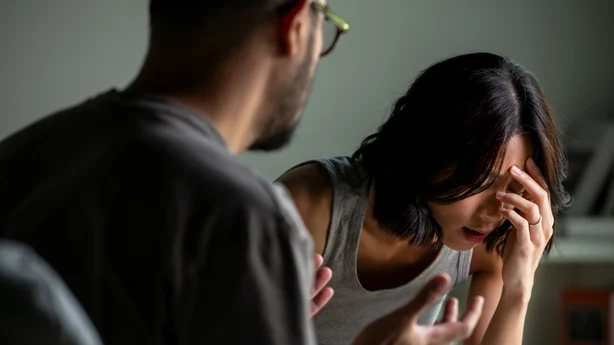
For me, battling anxious attachment triggers mostly stems from my experience of OCD, which frequently rears its head during relationships or periods of dating (casual is often the worst due to the confusion and lack of stability).
After a very toxic first relationship, my attachment style became far more anxious. Multiple therapists have helped me tackle the trauma of that relationship, but I still have many a habit to fight back every time I meet someone - or am trying to.
These tips aren't bulletproof, nor do I never have anxious meltdowns in regards to relationships, but they're the product of years of counselling and facing the music myself. Hopefully, they can ease the struggle for others, too.
That takes trust, commitment, and time. If you feel like something is wrong, it usually is. However, there's a difference between having anxious or intrusive thoughts that hinder a healthy relationship from forming, versus your intuition sounding the alarm on a problem.
Experts will say that many of your anxious thoughts come from a totally normal and valid place. For example, if you have experienced cheating in a relationship, it makes sense that you would move forward in your dating life harbouring trust issues with new partners.
If you have been in a toxic relationship where there was a constant escalation to aggression, your next partnership would presumably involve you having a fear of conflict or of upsetting the other person.
Be compassionate to yourself and what you have experienced; it may have increased your anxiety, whether it dates back to childhood or something that occurred recently. Your brain is trying to protect you from future harm, so you owe it a bit of grace. Reacting to your thought patterns with frustration or shame won’t ease them in the slightest. You can always improve your ability to self-regulate.
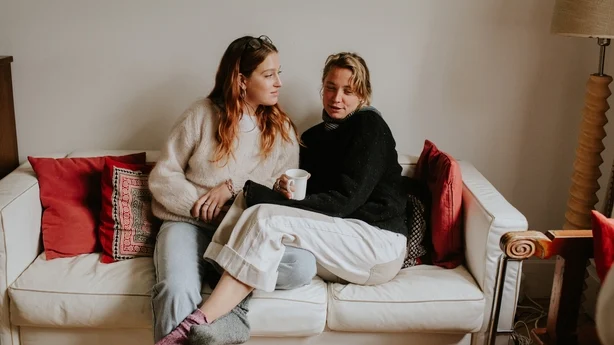
Many forms of therapy are available for this purpose, such as Cognitive Behavioural Therapy - often used to treat OCD. Another route is EMDR (Eye Movement Desensitization and Reprocessing), which was introduced to treat PTSD. A form of psychotherapy, EMDR enables people to heal from emotional distress resulting from disturbing life experiences.
Know when to consult a professional, for example, if you feel as though your anxious attachment triggers are having a genuinely detrimental impact on your life. Financial stability and time availability may play a role in this, but Insight Matters on Capel Street is an affordable and queer-inclusive clinic with numerous different specialists available. Always consult a professional if you are feeling overwhelmed or need more supports.
Here are my personal tips for navigating relationships while experiencing anxious attachment.
Try not to overthink. A common tendency for people with anxious attachment is to over-analyse every little thing. Try to limit rumination and instead practice letting things go (easier said than done). Journaling or having a trusted friend or therapist to talk things through with can help you gain perspective. Just make sure your friend has the emotional bandwidth to help.
Nourish your own needs first. One way to think about relationships is: don’t go to the supermarket starving and never have empty cupboards. Basically, you’ll accept scraps when you’re hungry. The same analogy can be applied to dating. If you are full of respect for your needs, you can create a solid foundation of self-esteem.
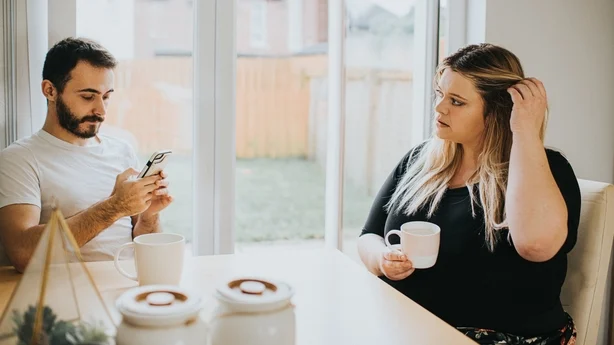
Know how to handle rejection, a breakup or abandonment (i.e. your worst fears playing out). This is one successful way to regulate your anxious attachment triggers. Being happily independent is an extreme form of exposure therapy. If you can foster the connection you have with yourself, it becomes much harder for someone else to negatively impact your life. The ability to set healthy boundaries comes from knowing what care and love we deserve.
Be wary about tying your self-worth to romantic relationships. Building a strong sense of self outside of the relationship is crucial: explore your hobbies and immerse yourself in community. In the same way that we are encouraged after a breakup to try new activities and meet more people, realising that there is far more to life than dating can give those who struggle with anxiety in relationships a huge safety net. Build support systems that expand your world. We all need a support system that isn’t just one person lifting us up.
Instead of catastrophizing, practice writing down the facts of the situation. "What is actually happening right now?" Remind yourself of the evidence that supports the idea that your partner cares, even if they haven’t responded immediately. Don’t write the ending to the film without waiting for the script to arrive, as someone once told me. You can also practice jumping to ‘positive’ conclusions (even if they’re delusional!) rather than the worst case.
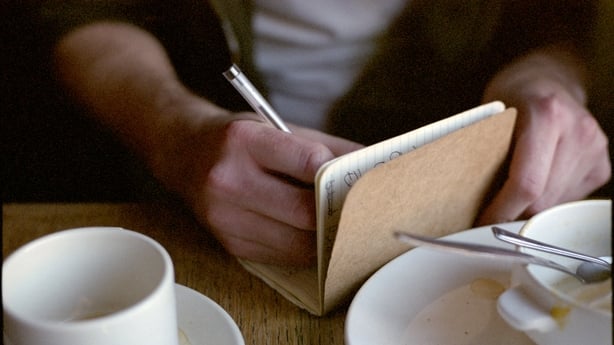
Learn how to calmly and clearly express your needs. No, it doesn’t make you clingy. People with anxious attachment may feel the urge to ask for reassurance in ways that may seem overwhelming to their partners. For me, the ‘right’ person never gave me a reason to feel ill at ease. I only felt like I needed reassurance from people who weren’t great communicators or whose actions were not mirroring their words. Actions, or lack thereof, can be closure.
Practice saying how you feel without blame or accusations. For example, ‘I feel insecure when I don’t hear from you’ rather than ‘You never text me back’. Everyone has different ways of showing and receiving care. One partner may find digital communication to be surface-level and unimportant, but for you, it could be a critical way of knowing that your partner is thinking about you when you aren’t together. Discuss what constitutes reasonable communication and set mutual expectations for when you could check in with each other. Clarity always reduces anxiety, so don’t bury your feelings or resentment can easily develop.
Remember that building trust takes time. If you both show up for each other consistently, these feelings of craving reassurance may diminish as you see if their intentions are sincere. It’s important to also respect your partner's energy. Make sure you have open discussions about each other’s emotional needs, and agree on how to balance yours with theirs. Fight having excessive dependence on the other person for emotional regulation. It’s important to learn to give your partner space without interpreting it as a sign of rejection.
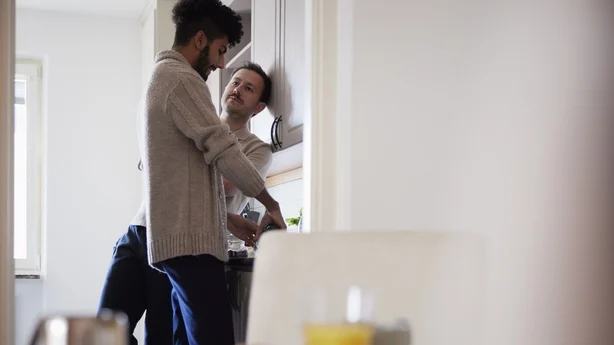
If your brain is constantly obsessing over your partner, it doesn’t have room to focus on yourself. Rejection is redirection, as the TikTok girlies love to say. It’s realignment! The person who you are supposed to have a great relationship with won’t make you feel as though they’re seconds from walking out the door. You will feel calm (at least most of the time).
Recognise when you manage to stay calm during a triggering situation, express your needs in a healthy way, or self-soothe without seeking reassurance. Celebrating these moments can help reinforce healthier attachment behaviours moving forward, and it’s a sign of healing. Remember, it’s a process that takes patience.
Also, dating is supposed to be fun. If it is causing emotional stress or taking away from your relationship to yourself, it’s time to pause.
If you have been affected by issues raised in this story, please visit: www.rte.ie/helplines.